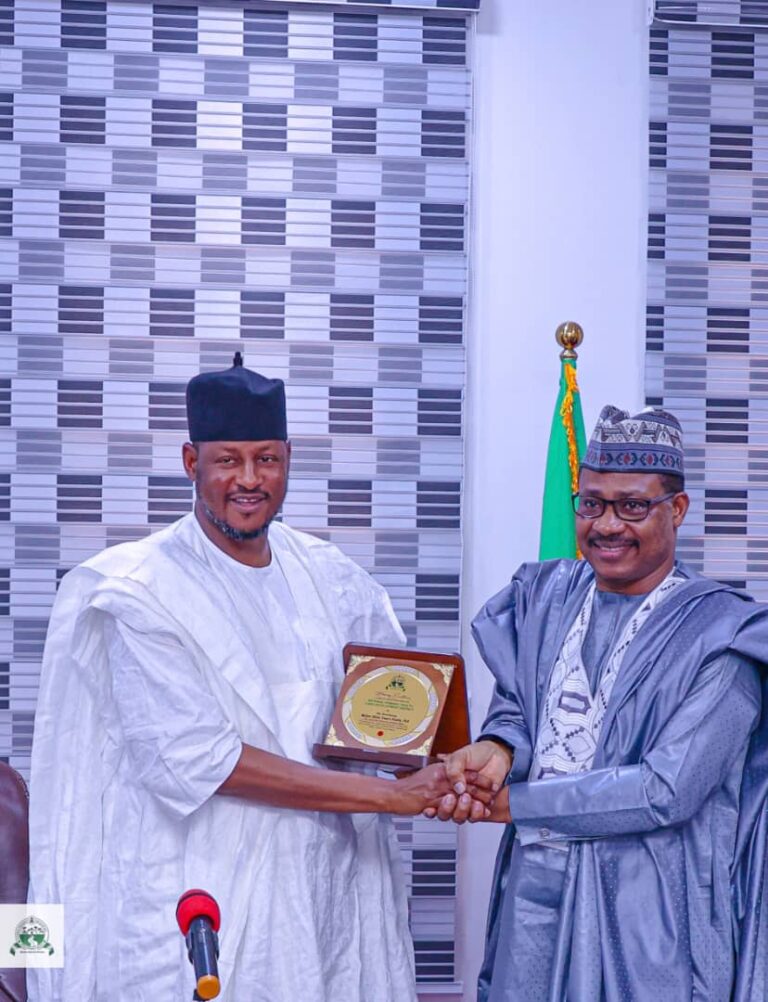UN Agencies, Katsina Moves to Tackle Diphtheria Outbreaks

In a significant stride for healthcare in Katsina, Dr. Walter Kazadi Molumbo, the Country Director of the World Health Organization (WHO), led representatives from various international agencies and partners to engage in discussions with the Katsina State Government, headed by Malam Dikko Umaru Radda. The focus of this meeting was on devising strategies to advance healthcare initiatives, strengthen immunization efforts, and effectively tackle the ongoing outbreaks of diphtheria.
Held at the state government house recently, Dr. Molumbo emphasized the paramount importance of collaboration between the international health agency and the newly established government. This collaboration seeks to align investments and resources with the government’s manifesto and priorities.
Highlighting the pressing need to reinforce routine immunization efforts, particularly given the ongoing diphtheria outbreak, Dr. Molumbo emphasized that this outbreak underscores immunity challenges in the community, especially among children. He stressed the necessity of revitalizing primary healthcare and expanding efforts beyond just routine immunization.
“The recent diphtheria outbreaks have exposed vulnerabilities in our community’s health,” said Dr. Molumbo. “Reviving routine immunization in primary healthcare is essential to safeguarding the well-being of our children and the entire population.”
Acknowledging the joint efforts of various organizations in responding to the outbreak, Dr. Molumbo acknowledged the persistent challenge posed by vaccine-derived polio, even as progress is being made against wild polio virus transmission. He expressed optimism about Katsina’s pivotal role in overcoming these health threats.
“Katsina’s partnership with neighboring Zamfara is of critical importance in containing the spread of these viruses,” emphasized Dr. Molumbo. “Katsina’s endeavors are crucial for preventing further outbreaks and transmission of these diseases.”
Dr. Molumbo emphasized the influential role of local leaders, traditional rulers, and organizations in the fight against health crises. He urged the state government to intensify COVID-19 vaccination efforts to ensure a higher proportion of the population receives protection against the virus.
Concluding his remarks, Dr. Molumbo conveyed appreciation for the collaboration with the Katsina government and their commitment to achieving universal health coverage. He reaffirmed WHO’s dedication to supporting these objectives.
During the meeting, Dr. Faisal Shuaib, the Executive Director of the National Primary Health Care Development Agency (NPHCDA), highlighted the paramount significance of primary healthcare. He underscored the role of investing in primary healthcare in enhancing community well-being and fostering economic growth.
“Investing in primary healthcare lays the foundation for a robust health system that directly benefits the people of Katsina. It not only improves healthcare accessibility where individuals reside and work but also fuels economic growth, elevates productivity, and fosters social stability,” Dr. Shuaib emphasized.
Addressing challenges faced by the state, Dr. Shuaib noted the commendable progress under Governor Radda’s leadership, while also pointing out the need to address gaps in human resources.
Highlighting the importance of collaboration to combat vaccine-preventable diseases, Dr. Shuaib stressed the significance of a unified approach and well-coordinated strategies for eradicating these threats.
“This challenge is not isolated to Katsina State but extends across the nation. The shortage of human resources at the primary healthcare level is a significant barrier, hindering the achievement of primary healthcare indicators,” said Dr. Shuaib.
Dr. Shuaib also underscored the need for proper distribution and the recruitment of additional healthcare professionals such as midwives, nurses, and chief agents.
“While infrastructure is crucial, it is not the primary challenge in the healthcare sector,” Dr. Shuaib affirmed. While acknowledging the importance of well-equipped healthcare centers, he highlighted the necessity of an adequate number of skilled healthcare workers to ensure the potential benefits of these facilities are fully realized.
Dr. Shuaib reiterated the extensive impact of a robust primary healthcare system. “Investing in primary healthcare not only empowers individuals but also nurtures strong families and thriving communities, ultimately contributing to a prosperous nation,” he emphasized.
In response, Governor Radda acknowledged the complexities of the challenges facing the state. However, he emphasized that his administration’s key policy agenda centers on the health sector. He highlighted the proactive measures undertaken by his government, even before assuming office, to formulate a strategic policy aimed at elevating the state’s health sector to new heights.
“We were well-prepared and are wasting no time in implementing our strategic policies,” asserted Governor Radda, underscoring the deliberate decision to appoint capable young individuals to key cabinet positions.
Governor Radda further presented a need assessment report conducted for the health sector to the visiting team, showcasing his administration’s dedication to confronting healthcare challenges head-on.
Culled from abc news

